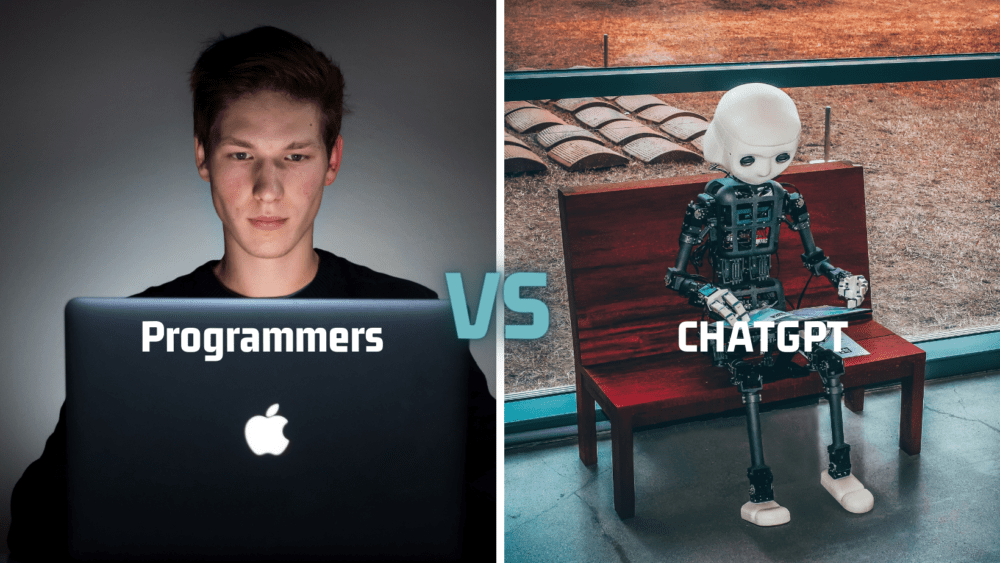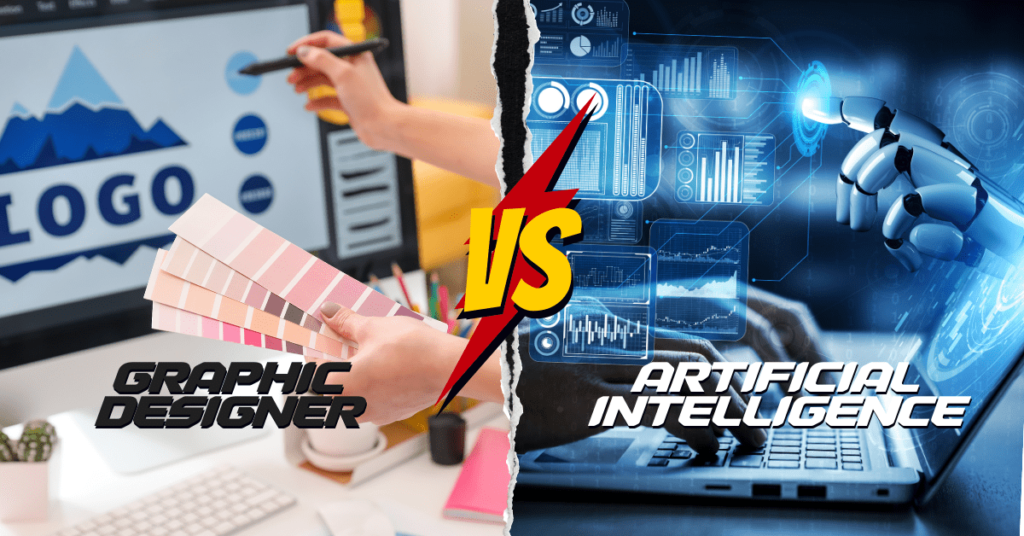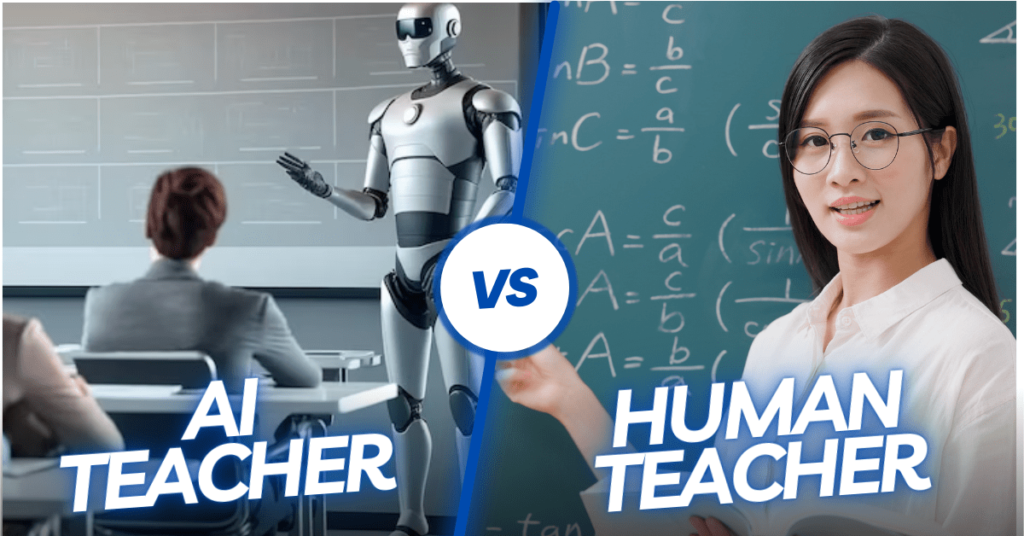Artificial intelligence (AI) has been revolutionizing various industries, and the emergence of language models like ChatGPT has sparked curiosity about its potential to replace programmers.
ChatGPT is an advanced language model based on GPT-3 and GPT-4 architectures, meticulously trained on extensive datasets to generate human-like responses. This AI chatbot demonstrates remarkable capabilities, ranging from writing articles, and solving problems, to even coding in multiple programming languages. However, concerns arise about its potential impact on the programming profession.
In this article, we will delve into the intriguing question that has been roaming around on social media:
Will ChatGPT replace programmers?
By analyzing the information gathered from various sources, we aim to present a comprehensive overview of this exciting topic. Let’s examine different perspectives to draw a well-rounded conclusion.
Table of Contents
Argument Number 1 – ChatGPT will Replace Programmers
Let’s look at the situation from a pessimistic perspective and try to understand the viewpoint of tech cynics first!
Tech critics present a range of narratives on why they believe ChatGPT will replace programmers in the near future. These arguments challenge traditional notions and raise thought-provoking questions about the role of AI in the programming landscape.
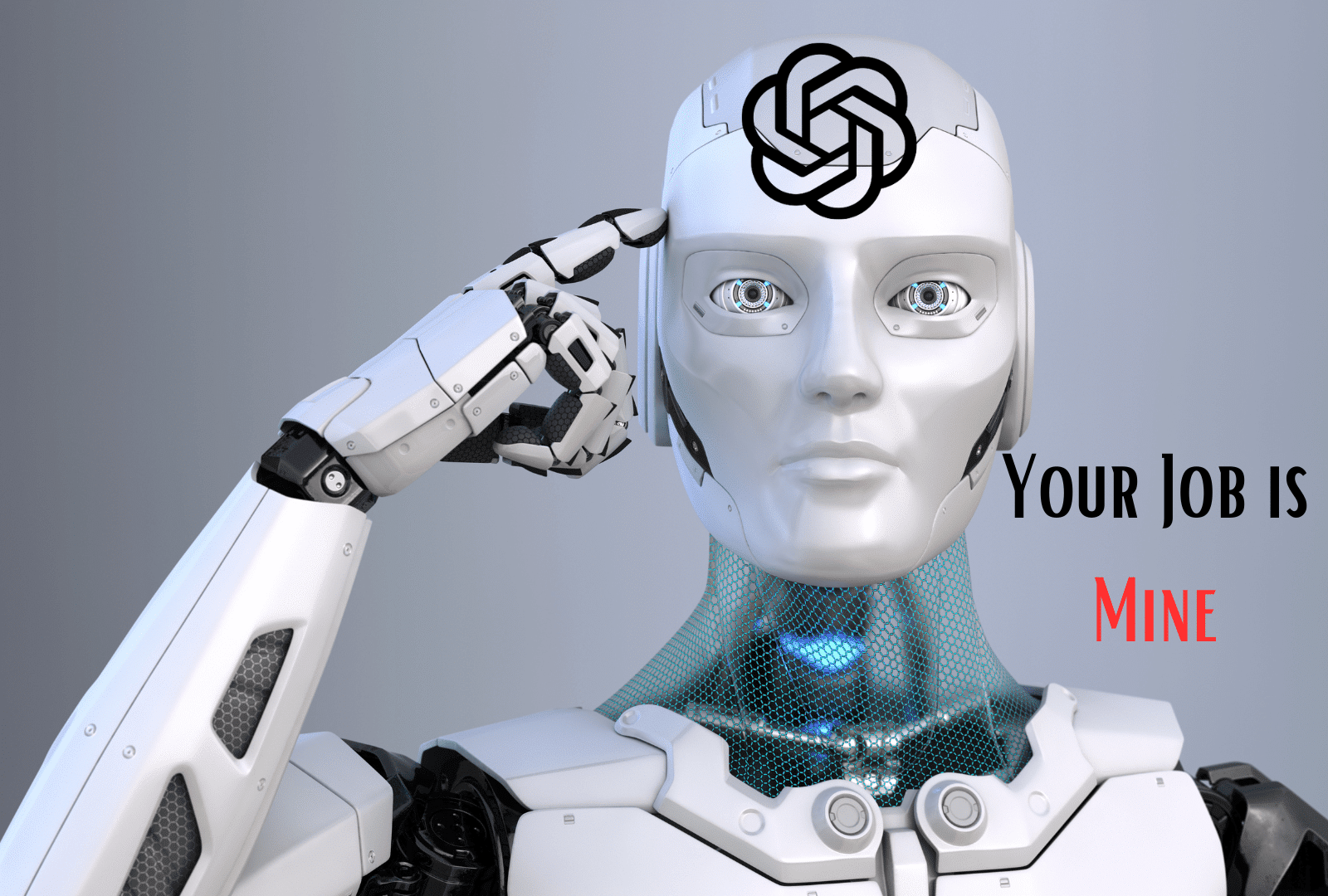
ChatGPT will Replace All Grades of Programmers
Many people believe that AI will only replace inexperienced programmers.
However, this overlooks the fact that AI possesses unparalleled proficiency and broad qualifications in writing software codes. It can excel at tasks such as passing coding interviews, architecting systems, and understanding multiple programming languages. While world-class developers also generate code with bugs, their cognitive abilities cannot match the geometric growth rate of AI.
AI is not here to help Programmers
Another misconception among the masses is the notion that AI is meant to augment rather than replace human programmers.
However, when considering the significant costs associated with employing millions of developers worldwide, it raises questions about whether industry giants like Bezos would prefer to replace them with cost-effective AI systems.
Predictions about AI Replacing Human Programmers
Tech critics predict a future where AI gradually replaces human programmers.
- Phase 1: Tech layoffs due to AI integration.
- Phase 2: AI makes augmented engineers productive or manages code independently, impacting low performers and generalists.
- Phase 3: No-code AI tools empower non-technical users, shifting focus from traditional coding.
- Phase 4: Code optimization and maintenance by AI reduces the need for human coders.
As we move into the future, the programming landscape is poised to undergo substantial changes. Tech critics argue that AI’s ability to outperform humans in various programming tasks, coupled with cost considerations, may lead to the eventual replacement of programmers.
However, it is essential to consider counterarguments and the unique skills that human programmers bring to the table.
Argument Number 2 – ChatGPT will not replace Programmers
Now let’s understand the logical arguments as to why ChatGPT will never replace programmers.
Despite the promising advancements of ChatGPT in assisting programmers with code generation, there are several reasons why it is unlikely to replace them:
- Complexity: ChatGPT (at its current state) cannot match the critical thinking, problem-solving skills, and practical implementation abilities of programmers. They lack the ability to reason, implement ideas practically, and think critically about complex systems.
- Understanding and usability: While ChatGPT can generate code, only programmers possess the knowledge and skills to comprehend, work with, and utilize it effectively. The coding-related outputs of ChatGPT may be meaningless to the general public.
- Reliability and accuracy: ChatGPT occasionally produces inaccurate responses and flawed code, which poses ethical concerns. Companies cannot risk replacing their software engineers with an AI system that might create faulty software. Stack Overflow, a platform used by programmers, temporarily banned the use of ChatGPT due to low correctness rates, highlighting its lack of reliability and potential harm to users seeking accurate answers.
- Debugging challenges: ChatGPT currently struggles with debugging problematic code, particularly in large and intricate codebases. Software engineers play a crucial role in debugging and maintaining code.
- Prompt engineering: Generating complex applications using ChatGPT requires the formulation of intricate prompts. This task demands technical expertise and “prompt engineering” skills, which software engineers possess.

So, while ChatGPT can enhance text generation for programmers, its limitations in reasoning, reliability, debugging, and prompt engineering, along with sustainability concerns, suggest that programmers will remain essential in the programming landscape for a very long time.
ChatGPT – an ally, not an adversary
Rather than engaging in a debate about whether ChatGPT will replace programmers, let’s approach the situation from a positive perspective. ChatGPT can be an invaluable tool for programmers, offering assistance in various ways:
- Streamlining Workflow: ChatGPT can handle trivial repetitive tasks, freeing up programmers’ time to focus on more complex and critical aspects of software development.
- Solving Problems: ChatGPT can assist newcomers in programming by providing guidance, explanations, and solutions throughout the software development process.
- Enhanced Code Comprehension: ChatGPT can generate plain language explanations of complex code sections, simplifying code comprehension and maintenance for programmers and other stakeholders. It can even automate the generation of code comments and documentation, improving code readability.
- Collaboration and Innovation: By combining human expertise with AI capabilities, programmers can leverage the power of ChatGPT to automate tasks, suggest code snippets, and enhance code generation. This symbiotic relationship drives innovation and unlocks new possibilities in software engineering.

By embracing ChatGPT as a valuable ally and integrating it into their workflow, programmers can enhance their productivity and effectiveness. The combination of human skills and AI assistance holds the potential for significant advancements in the field of software engineering.
Is Computer Programming a Good Career in 2023?
In the ever-evolving technological landscape, aspiring programmers may wonder about the viability of a career in programming and reach a crucial stage where they ask a significant question: Is computer programming a financially lucrative profession?
The answer is a YES. The demand for skilled programmers continues to climb as we delve deeper into the digital age. From mobile app development to artificial intelligence, data analysis to cybersecurity, there are diverse coding opportunities available for individuals of varying interests and skill levels.
According to the Bureau of Labor Statistics, employment of web developers and digital designers is projected to grow 23 percent from 2021 to 2031, much faster than the average for all occupations.
But as AI technologies become more prevalent, the demand for programmers who can seamlessly incorporate AI functionalities into their projects will skyrocket. Hence, aspiring programmers should focus on acquiring the skills and knowledge required to effectively communicate with Generative AI models, leverage their capabilities, and create AI-friendly platforms and applications.
By staying abreast of technological advancements, embracing AI tools, and continuously honing their programming skills, individuals can position themselves for a rewarding and successful career in programming in 2023 and beyond.
What Tech Experts have to say?
Now let’s have a look at some of the things tech experts have said about the impact of ChatGPT on programmers.
CEO and Co-Founder of Surfer, Lucjan Suski said, “ChatGPT is an Additional Asset to Developers; Not a Replacement”
CEO at Seota Digital Marketing, William Hogsett said, “Developers Still Needed for Quality Checking”
CTO at Tidio, Marcin Gwizdala said it perfectly, “AI Won’t Steal Your Job; a Person Using AI Will”
These are just a few examples, almost all the major tech gurus understand the importance of programmers and believe in their unmatched creativity and skillset.
Even artificial intelligence does not perceive itself as a substitute for human programmers. In fact, we asked ChatGPT if it is ever going to replace human programmers, and this is what it said:
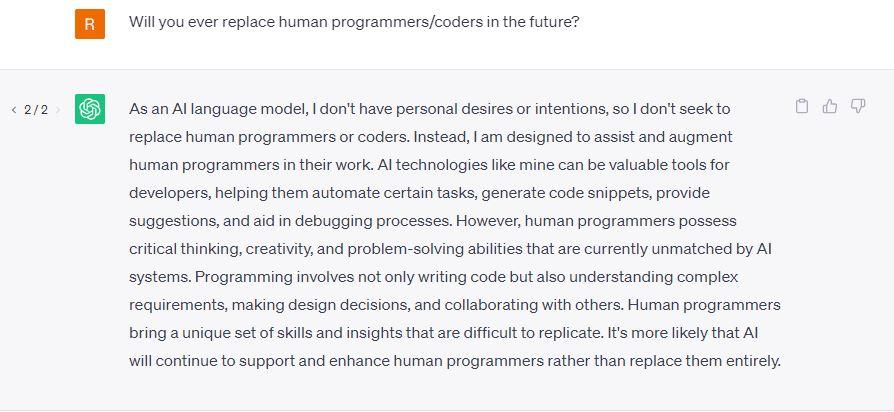
Our Take on this
By analyzing the various narratives surrounding the debate, it becomes clear that ChatGPT is not intended to replace programmers but rather to become their ally. However, it would be incorrect to claim that this AI revolution, exemplified by ChatGPT, has no impact on the software development market.
In fact, it has significantly influenced the market and will continue to do so.
Similar to how ChatGPT has impacted the content writing market, it is also influencing the field of programming. With the assistance of ChatGPT, programmers have become remarkably more productive and efficient, as they no longer need to engage in trivial repetitive tasks. This boost in productivity enables them to accomplish multiple tasks within the same timeframe.
Now, you might wonder how enhancing programmer productivity could negatively affect the software development market. Isn’t it a positive thing?
Well, here’s the catch.
Let’s consider a software development company with a project that requires 20 developers to complete within a week. With the increased productivity facilitated by ChatGPT, the same workload can now be handled by only 7 to 8 individuals. As a result, companies will require fewer employees to accomplish the same tasks. Like in the case of freelancing, capable programmers can take on the workload that would have required 3 to 4 freelancers in the past.
While it is true that programmers will not be replaced by ChatGPT, it is essential to stay competitive and valuable in the market. Upgrading one’s skills by effectively utilizing AI tools, such as ChatGPT, is crucial to enhancing productivity and avoiding being replaced by programmers who possess knowledge of utilizing these tools.
Final Words
The rise of AI technology, including ChatGPT, has sparked discussions about the future of programmers. While AI can enhance productivity and automate certain tasks, it cannot replace the unique blend of technical skills, problem-solving abilities, and creativity that programmers bring. But Programmers need to embrace AI as a valuable tool, leveraging its capabilities to enhance productivity and collaborate effectively.
Frequently Asked Questions (FAQs)
Will ChatGPT Take Away Tech Jobs?
Immediate worries about ChatGPT taking away tech jobs may be unfounded, although changes are expected in the future. The impact of AI on the job market is complex and requires ongoing evaluation.
When will ChatGPT replace programmers?
ChatGPT is not expected to replace programmers in the future ever. While it can automate certain aspects of programming, such as code generation and bug fixing, it cannot replicate the human creativity and critical thinking necessary for complex software development.
Why ChatGPT will not replace programmers?
ChatGPT will not replace programmers due to their critical thinking, problem-solving skills, practical implementation abilities, and complexity of programming tasks.
Will ChatGPT 4 replace programmers?
Despite being a more smart and powerful model, ChatGPT 4 will not replace human programmers.
How to use AI tools to upgrade programming skills?
AI tools can be utilized to upgrade programming skills through idea generation, code reviews, code completion, bug detection, performance optimization, and documentation.
What jobs AI cannot replace?
AI cannot replace jobs that involve high emotional intelligence or require deep expertise in specialized fields. These include professions like social workers, therapists, nurses, lawyers, doctors, scientists, etc.

